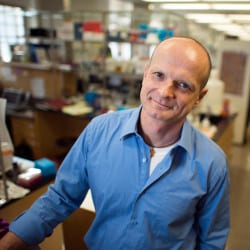
Field-Of-Study: Organismic Biology & Ecology

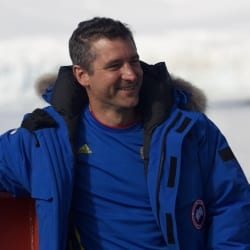
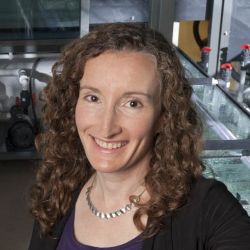
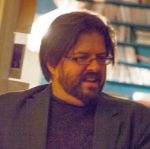
Matthew Harris
I am an assistant professor in the Department of Genetics at Harvard Medical School and Orthopedic Research at Boston Children’s Hospital. The work in my lab focuses on understanding the genetic regulation of development and how development translates the information encoded in our genomes into complex integrated systems of an organism. Our question is if
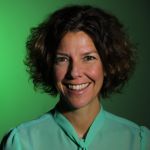
Jessica Green
A professor at both the University of Oregon and the Santa Fe Institute, Jessica Green is an engineer and ecologist who specializes in biodiversity theory and microbial systems. She co-founded the Biology and the Built Environment (BioBE) Center with Brendan Bohannan and G. Z. (Charlie) Brown, creating a team that bridges biology and architecture. Jessica
Tom Daniel
Tom has several honors and awards for his research and teaching, including the selection as a MacArthur Fellow in 1996, the University of Washington Distinguished Teaching Award, and the University of Washington Distinguished Graduate Mentor Award. He is on the editorial boards of Science Magazine, Proceedings of the Royal Society (Biology Letters) and PLOS Computational
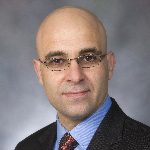
Luay Nakhleh
Luay Nakhleh is an Associate Professor of Computer Science at Rice University, and holds joint appointments with that university’s departments of Ecology & Evolutionary Biology, and Biochemistry & Cell Biology. Further, he is an adjunct Associate Professor in the Department of Systems Biology at the M.D. Anderson Cancer Center, and a faculty member of the
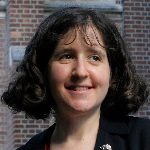
Laura Landweber
Laura Landweber is a Professor of Biology in the Department of Ecology & Evolutionary Biology at Princeton University. She received her A.B. summa cum laude from Princeton in 1989 and her Ph.D. from Harvard University in 1993 working with Walter Gilbert and Richard Lewontin. Before returning to Princeton as an assistant professor in 1994, she
A. Bernardo Carvalho
One of the world’s leading researchers on the evolution of Y chromosomes and an active participant in both the Drosophila and Rhodnius prolixus genome projects, Antonio Bernardo Carvalho is an Associate Professor in the Genetics Department at the Universidade Federal do Rio de Janeiro, Brazil (UFRJ), a position he has held since 1991. He was
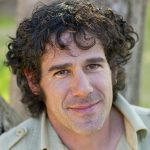
Rafe Sagarin
Rafe Sagarin is a marine ecologist and environmental policy analyst. He is currently documenting the transformation in science back towards primarily observational, rather than experimental, methodologies. This work follows from his own experience using natural history observations and historical data sets from writers, naturalists, artists, and gamblers to reassemble historical patterns of ecosystem change, including

Sarah Perin Otto
I received a B.Sc. (1988) and a Ph.D. (1992) from Stanford University. Having joined the faculty at the University of British Columbia in 1995, I am currently a full professor in the Department of Zoology and director of the Biodiversity Research Centre. I am co-author of a book, A Biologist’s Guide to Mathematical Modeling in
Francisco Bozinovic
One of the most highly regarded ecologists and evolutionary biologists in the world, Francisco Bozinovic is a Professor at the Center for Advanced Studies in Ecology and Biodiversity at the Pontificia Universidad Católica de Chile. A growing interest in environmental biology and natural history, developed during his undergraduate years at the Universidad de Chile (Licentiate
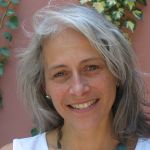
Ana Parma
Ana Parma is an expert in fisheries modeling, assessment, and management. Her main research interest is in the development of stock assessment methods and harvesting strategies that address assessment uncertainties. Originally trained as a biologist at the Universidad Nacional La Plata, Argentina, where she obtained her undergraduate degree, she became involved in fisheries when she
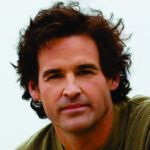
C. Josh Donlan
Josh Donlan is the Executive Director of Advanced Conservation Strategies, whose purpose is to deliver innovative, self-sustaining, and economically efficient solutions to environmental challenges by building cross-sector synergy and integrating biological, economic, technological, and socio-political threats and opportunities. He leads the organization by building interdisciplinary teams to tackle problems in novel ways. Trained as an

Walter M. Farina
Walter M. Farina is an Argentine biologist. He received a M.Sc. (1989) from the University of Buenos Aires and a Ph.D. at the same university in 1993. He obtained a research Fellowship given by the German Government (DAAD) to spend two years (1991-1993) at the University of Tübingen, Germany. On completion of that Fellowship, he

L. Scott Mills
Dr. L. Scott Mills is a Professor in the Wildlife Biology Program in the College of Forestry and Conservation at the University of Montana. His research across normally disparate scientific disciplines has led to key advances in applying ecological science to wildlife conservation, including new insights into how genetic variation affects persistence of wild species,